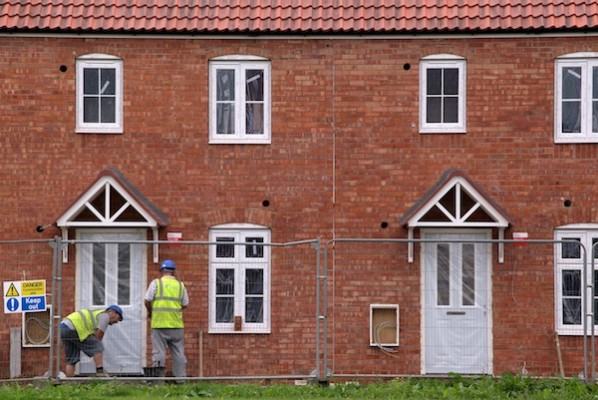Nick Boles is to be applauded and rewarded for being so ballsy on housing need. It is heartening to read the minister describing current housing shortage as ‘immoral’ and a ‘threat to social justice’.
I could write a long post about why Boles’ latest push for more homes (which involves a ‘Boles Bung’ of money that communities can use for their own benefit in exchange for new local housing developments) is wonderful, and how he should win all sorts of political prizes and promotions if he succeeds, but I’ve already done that. Instead, it’s worth examining the tricky problems which will mean the Planning Minister needs to keep wearing his thick skin in order to get the 250,000 new homes a year that Britain needs built.
The first problem comes, as you might expect, from the Treasury, which in effect runs a mirror structure of each Whitehall department, with its own officials examining CLG policy. This can make meetings between departments and the Treasury rather awkward, as officials from the latter frequently have their own ideas, and shoot down suggestions from the arguably more experienced CLG staff. This has been a source of frustration to ministers over the past two and a bit years, and this evolutionary leftover from the controlling Brown years will continue to cause Boles problems.
The next is that CLG itself is now utterly terrified of upsetting the NIMBY lobby with any suggestion that large numbers of homes are going to appear on their green fields. Boles’ plan is a very good step towards resolving communities’ reluctance to see new development, but there is a more hardened lobby beyond those who feel a little uneasy about their own back yards. This includes MPs who are terrified of any encroachment on greenfield sites, regardless of whether they have much greenfield in their constituency. There would be a significant revolt in Parliament if any legislation proposing this were to appear.
This face-off between ministers and anti-development Conservatives highlights a very important fault-line in right-wing politics which affects reforms other than planning. There are those free market Conservatives like Boles, or like the leading Tory-aligned think tanks, and then there are those conservatives with a small ‘c’ whose instincts are guided by the importance of conservation, whether it be a view from their window or an institution. In the same way as Labour clashed with its natural voters who wanted it to take a harder line on welfare and immigration, the Tories will always clash with this chunk of their supporters when they try to spread privilege by building more homes.
This week’s row over benefit cuts underlined how important Boles’ work is: this government would not be having to find more and more ways to shave bits off the welfare bill and particularly the ballooning housing benefit bill if successive regimes had managed to get a grip on housebuilding. This is another reason why Labour’s position on the benefit cuts is particularly frustrating: even when the sun was shining, they failed to build sufficient roofs when in government. The importance of Boles succeeding cannot be exaggerated, not just so that individuals can benefit, but because of the long-lasting effects on the size of the state of finally solving the housing crisis.







Comments